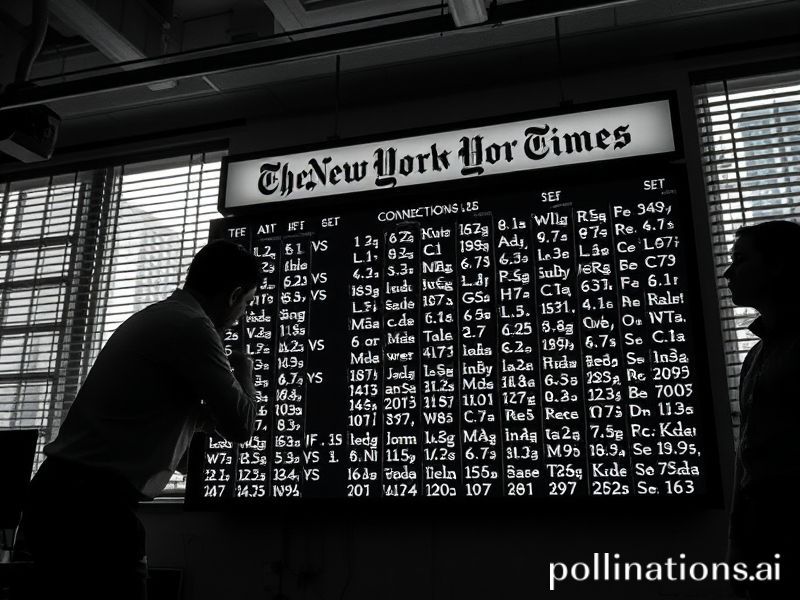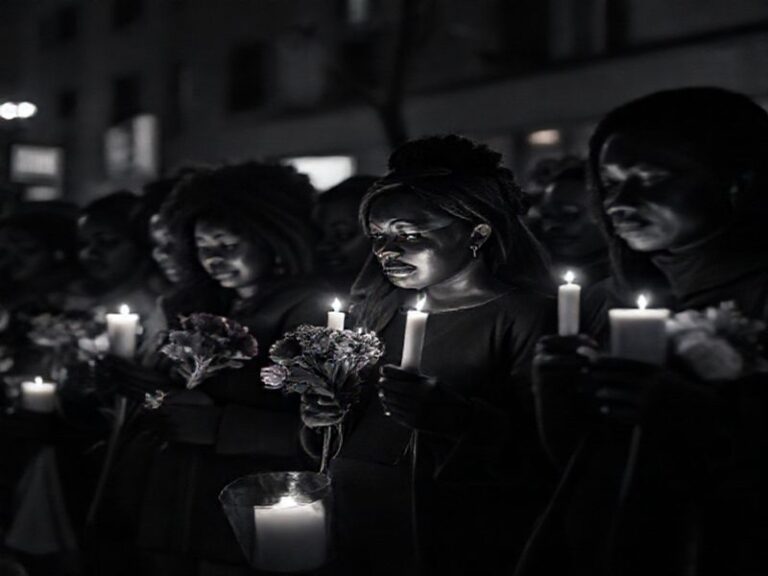Global Brain Freeze: How One NYT Puzzle Grid Froze the Planet on Sept 16
September 16, 2023 – Somewhere on the globe, while missiles still flew over the Black Sea and central banks continued their quiet panic, a six-by-six grid of apparently innocent words quietly hijacked the collective attention span of the planet. The New York Times’ daily puzzle, Connections, dropped its September 16 edition and—because we are all now voluntary citizens of the same algorithmic empire—office Slack channels from Lagos to Lisbon froze in unison as colleagues silently screamed at the screen “WHY WON’T ‘GORGON’ GO WITH ‘MEDUSA’?”
In a saner era this would be a parochial amusement, a bite-sized distraction for Manhattan subway riders. Instead it has become a trans-continental ritual, proof that the lingua franca of the 21st century is not English but the shared vocabulary of pop culture, late-stage capitalism, and whatever the hell a “pump” is when it’s not footwear. From Jakarta coffee shops where university students translate clues through three layers of slang to pensioners in Prague discovering that “links” can mean both sausages and golf rounds, the puzzle functions as a pop-up UN of neurotic overthinkers—all equally convinced the answer is hiding some geopolitical subtext.
Of course, the categories themselves are tiny mirrors of world disorder. One group on the 16th—“MERCURY, VENUS, EARTH, MARS”—looks harmless until you remember that these same planets are currently hosting a frantic new space race featuring billionaires who treat gravity like a tax loophole. Another quartet—“BOND, STOCK, FUTURE, OPTION”—could just as easily be a syllabus for the next global crash; indeed, traders in Singapore confessed they solved that set faster than the finance reporters who cover them.
The genius of Connections is its smug egalitarianism: it humiliates PhD linguists and Instagram polyglots at exactly the same speed. A Somali taxi driver in Minneapolis and a French philosophy professor will both stare blankly at “PITCH, TAR, RESIN, ROSIN” before muttering the same universal obscenity. In that moment the puzzle achieves what Davos never could—genuine cross-class solidarity through mutual incompetence.
Naturally, authoritarian regimes have noticed. China’s censors reportedly debated banning the game after discovering that “FREEDOM, JUSTICE, LIBERTY, RIGHTS” could form a hypothetical group, while the Russian state news agency gamely insisted that every solution on September 16 spelled out “Western decline” if you read the unused words backward during a lunar eclipse. Meanwhile, in the United Kingdom—ever eager to nationalize anything that distracts from the cost-of-living crisis—MPs proposed a Parliamentary edition where the only valid category is “EXCUSES”.
All of this would be merely droll if the stakes weren’t so existentially low. The planet is literally on fire, supply chains buckle like cheap lawn chairs, and yet a non-trivial slice of humanity spent the day arguing whether “TACO” belongs with “FRITO” or “TOTO.” (It belongs with “BURRITO,” obviously, but try telling that to the Swiss gentleman who emailed the Times claiming cultural bias against fondue.)
Still, perhaps there is something almost noble in our ability to manufacture shared crises from pure trivia. When the grid finally yields, a wave of dopamine ripples across time zones, uniting insomniac Australians and bleary-eyed Brazilians in the same tiny, pointless triumph. It lasts maybe eight seconds—then tomorrow’s grid arrives to remind us that entropy always wins.
So here’s to September 16, the day the world stood still over a half-dozen English nouns. May tomorrow’s puzzle be equally inconsequential, and may we never be so lucky as to run out of such blessed nonsense.







